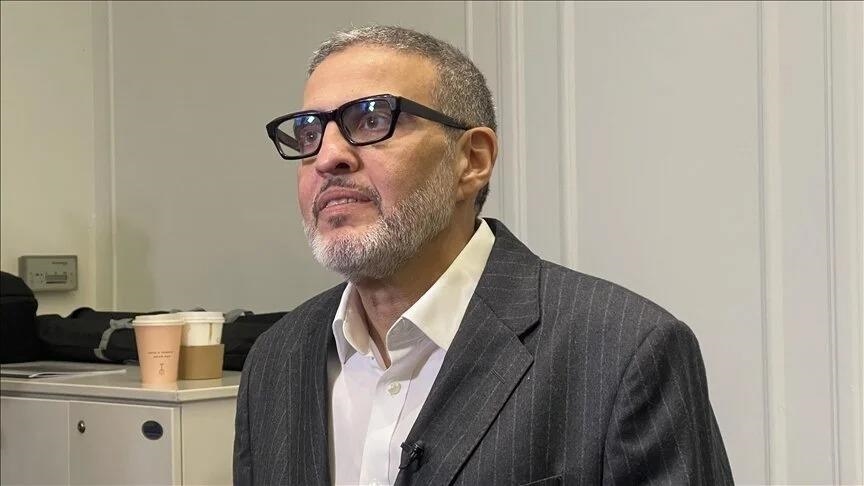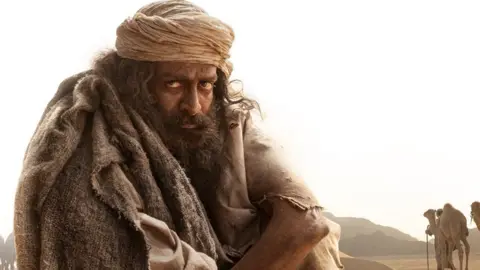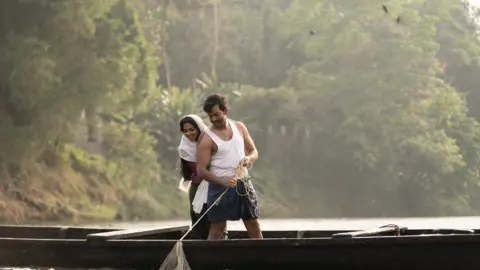'When I arrived at Berlin airport, I was stopped. I was taken down for questioning for three and a half hours. I was then told that I would not be allowed to enter German soil for the remainder of April,' Ghassan Abu Sitta tells Anadolu
Burak Bir |13.04.2024 -

- 'The reason behind this is they want to silence Palestinian voices. And the reason behind this is that what Nicaragua is saying in the International Court of Justice, that Germany is an accomplice to the genocidal crimes of Israel is true,' says war surgeon who spent weeks in Gaza to help wounded civilians
-'This is what accomplices do in a crime. They try to hide the evidence and they try to silence the witnesses and that's what Germany is trying to do,' adds Abu Sitta
LONDON
Doctor Ghassan Abu Sitta who was prevented by Germany from entering Friday to address a pro-Palestine conference in Berlin said German officials try to hide evidence and silence witnesses to the crimes in the Gaza Strip.
The British-Palestinian surgeon who is also the newly-appointed Rector of Glasgow University told Anadolu about what happened when he was held up by federal police at a Berlin airport and why he was banned from entry.
Abu Sitta said he landed in Germany to attend a Palestine Congress event to give evidence about what he saw in Gaza.
Until his return to the UK in November, Abu Sitta helped wounded Palestinians for weeks in Gaza, including at the Al-Ahli Baptist Hospital and the Al-Shifa Medical Complex.
"When I arrived at Berlin airport, I was stopped. I was taken down for questioning for three and a half hours. I was then told that I would not be allowed to enter German soil for the remainder of April," he said.
The war surgeon noted that he was also told not to try to deliver a speech via video from outside Germany or send a recorded video address to the conference.
"They asked me who I was, what I had done in Gaza. And they asked me whether I had received an invitation and whether there were planned marches or it was just going to be a speech," said Abu Sitta.
“The reason they gave is really a ludicrous reason. They said that they cannot ensure the safety of people attending the conference, and that's why they're canceling the conference.”
However, for Abu Sitta, the reason is quite different than what he was told. He said, "The reason behind this is they want to silence Palestinian voices."
"The reason behind this is that what Nicaragua is saying in the International Court of Justice -- that Germany is an accomplice to the genocidal crimes of Israel is true."
Germany is also facing legal charges from Nicaragua at the top UN court that it is "facilitating the commission of genocide" against Palestinians with its military and political support for Israel.
"This is what accomplices do in a crime. They try to hide the evidence and they try to silence the witnesses and that's what Germany is trying to do," added Abu Sitta.
Asked whether the UK Embassy in Berlin or UK Foreign Secretary have contacted him after he was denied entry, he said, he was contacted through his lawyer by a member of parliament representing his constituency.
"We will be taking it up both legally and diplomatically with the German government," added Abu Sitta.
Berlin police broke up the Palestine Congress in Berlin, less than two hours after the event began Friday.
Dozens of police officers stormed the meeting, cutting off the livestream transmission and electricity in the hall.
A police official ordered the 250 participants to leave the hall, spurring strong shouts of protest by the crowd.












